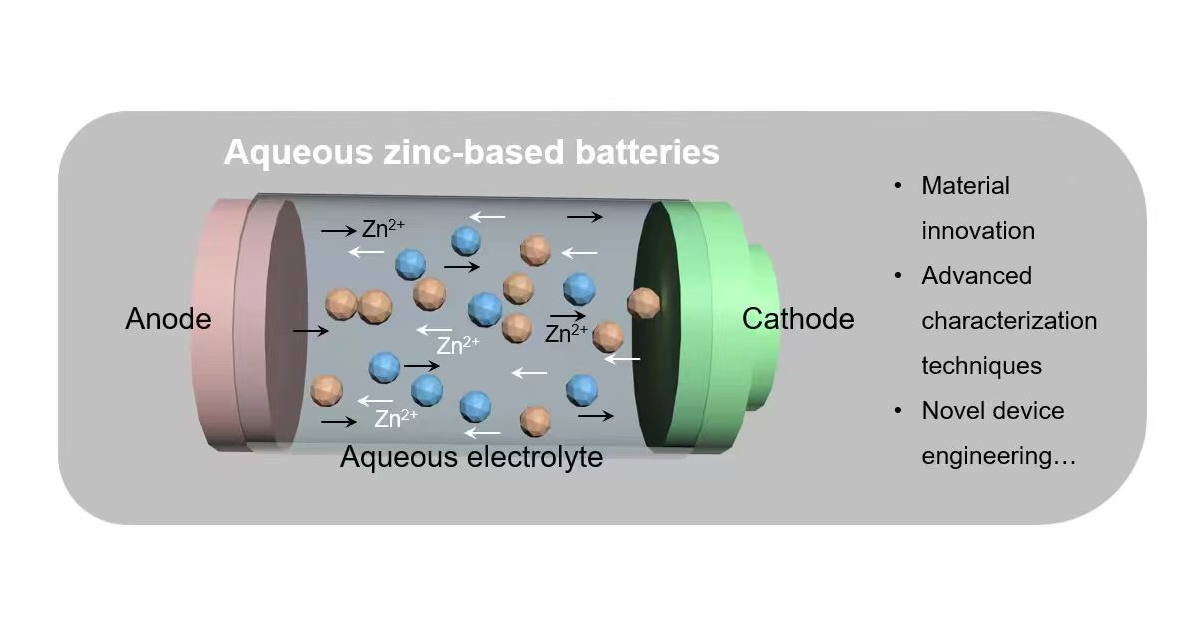Progress in Aqueous Zinc-Based Batteries
A special issue of Batteries (ISSN 2313-0105). This special issue belongs to the section "Aqueous Batteries".
Deadline for manuscript submissions: 15 May 2026 | Viewed by 45

Special Issue Editors
Interests: aqueous batteries; low-temperature batteries; micro-batteries; sulfur-based batteries
Special Issues, Collections and Topics in MDPI journals
Special Issue Information
Dear Colleagues,
Aqueous zinc-based batteries (AZBs) have emerged as a highly promising candidate for next-generation energy storage, driven by the compelling advantages of the metallic zinc anode, including high theoretical capacity, low redox potential, intrinsic safety, abundance, and eco-friendliness. However, their widespread commercialization is hindered by critical challenges across the entire battery system. These include zinc anode issues such as dendrite growth and hydrogen evolution reaction, as well as critical obstacles at the cathode like structural instability and dissolution, and limitations of aqueous electrolytes such as a narrow electrochemical stability window. This Special Issue, “Progress in Aqueous Zinc-Based Batteries,” aims to capture the latest breakthroughs in overcoming these multifaceted hurdles. We invite original research and reviews that explore innovative material design, advanced characterization techniques, and novel device engineering for high-performance AZBs. Topics of interest span from fundamental mechanistic studies of electrode–electrolyte interfaces to the development of practical battery configurations. We hope this collection will provide a platform for sharing cutting–edge discoveries and foster further development toward the large–scale application of this sustainable battery technology.
Dr. Chunlong Dai
Dr. Xuting Jin
Guest Editors
Manuscript Submission Information
Manuscripts should be submitted online at www.mdpi.com by registering and logging in to this website. Once you are registered, click here to go to the submission form. Manuscripts can be submitted until the deadline. All submissions that pass pre-check are peer-reviewed. Accepted papers will be published continuously in the journal (as soon as accepted) and will be listed together on the special issue website. Research articles, review articles as well as short communications are invited. For planned papers, a title and short abstract (about 100 words) can be sent to the Editorial Office for announcement on this website.
Submitted manuscripts should not have been published previously, nor be under consideration for publication elsewhere (except conference proceedings papers). All manuscripts are thoroughly refereed through a single-blind peer-review process. A guide for authors and other relevant information for submission of manuscripts is available on the Instructions for Authors page. Batteries is an international peer-reviewed open access monthly journal published by MDPI.
Please visit the Instructions for Authors page before submitting a manuscript. The Article Processing Charge (APC) for publication in this open access journal is 2700 CHF (Swiss Francs). Submitted papers should be well formatted and use good English. Authors may use MDPI's English editing service prior to publication or during author revisions.
Keywords
- zinc anode stabilization strategies
- electrolyte engineering
- advanced cathode materials
- interfacial characterization and mechanism studies
- novel battery configurations and systems
- functionalized devices and advanced applications (flexible, stretchable, micro–sized, biodegradable, and low–temperature tolerant batteries)
Benefits of Publishing in a Special Issue
- Ease of navigation: Grouping papers by topic helps scholars navigate broad scope journals more efficiently.
- Greater discoverability: Special Issues support the reach and impact of scientific research. Articles in Special Issues are more discoverable and cited more frequently.
- Expansion of research network: Special Issues facilitate connections among authors, fostering scientific collaborations.
- External promotion: Articles in Special Issues are often promoted through the journal's social media, increasing their visibility.
- Reprint: MDPI Books provides the opportunity to republish successful Special Issues in book format, both online and in print.
Further information on MDPI's Special Issue policies can be found here.






